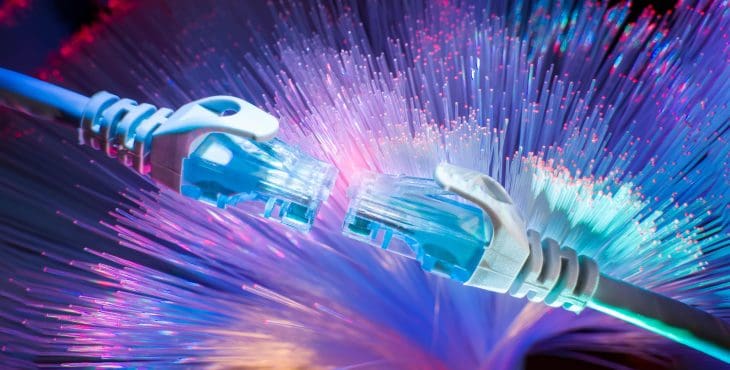
It goes without saying that the 21st century is the age of the internet. Internet to us is what the wheel was to pre-historic man or what the steam engine was to pre-industrial human civilization. High-speed broadband has become a prerequisite for the smooth functioning of virtually every aspect of our lives.
In the year 2000, a little over 43 percent, less than half, of the population of the U.S. was connected to the internet. Today, the figure has shot up to an astonishing 91.8 percent. So, it’s safe to say that broadband usage has exploded in the last two decades. And it’s only natural that the skyrocketing demand for highspeed internet has prompted dozens of businesses to enter the broadband industry and compete for a greater share of the market pie.
Picking An Internet Service Provider (ISP)
There are so many internet service providers (ISPs) readily available to American consumers that choosing the right one can become a little overwhelming. So, instead of suffering from a lack of options, today we face the dilemma of too many choices.
Picking an ISP whose plans and packages are compatible with your unique usage requirements is no easy task. It requires a fair bit of technical knowledge and a hefty amount of market research. And when it comes to internet connectivity no one wants to make a bad call. Because having to change providers repeatedly and going through multiple internet installations is naturally frustrating.
Luckily modern consumers have access to several digital platforms dedicated to helping them select the best internet provider, deals, and packages. The authoritative platform localcabledeals is one such example. The site gives visitors detailed information about the services of several dozen top U.S. ISPs so that they do not have to spend hours surfing online to make effective comparisons.

But before you jump onto the site, here is a list of some of the most important things you must consider before getting a broadband connection.
1. The Type of the Internet Connection
Not all ISPs use the same technology for internet transmission. There are several distinct types and methods of transmissions deployed by providers to beam high-speed internet to your homes. Some of the most common technologies and mediums of transmission used in the U.S. are Dial-Up connections (DSL), Cable Internet, Fiber Optics, and Satellite Internet.
Dial-Up Connections
DSL connections use regular telephone lines to transmit internet data to your homes. DSL is one of the oldest internet technologies. Being the oldest DSL is also the slowest but DSL connections are widespread. My advice is, do not go for a DSL connection if you have other options available.
Cable Internet
Cable internet uses higher bandwidth Coaxial cables to transmit data. They are much faster than DSL but are still considered to be older technologies.
Fiber Optic
Fiber optics is the fastest type of connection in the terrestrial internet family. There are fiber internet providers like Smithville Internet and Kinetic Internet that provide download speeds ranging into thousands of Mbps.
Sadly, being a newer technology Fiber infrastructure is not widespread. And even though cable providers like Century Link are updating their infrastructure, not all localities in the U.S. have access to fiber broadband. In my opinion, if your area has access to fiber broadband do not think twice, it is the fastest option available.
Satellite Internet Connections
As the name suggests, satellite ISPs like Hughesnet internet utilize satellites in space and dishes installed on your rooftop to keep you connected. Satellite internet covers almost every corner of the U.S., though speeds are not ideal. But if you reside in a rural or sparsely populated area a satellite-based connection is your only hope for continuous connectivity.
Dedicated Lines
And yes, if you are managing an internet-intensive business, we suggest you go with a dedicated line. These types of connections are generally reserved for enterprises and tend to be very expensive. But the speeds these connections provide dwarf those provided by any other type of connection out there.
2. Usage Limits and Data Caps
Several internet service providers place caps on the amount of data you can use in a month. These data caps can be as high as 1 TB and as low as 50 GBs a month. There are some empathetic providers like Spectrum Internet, who do not place any caps on the amount of data you can use in a month.
If you exceed your monthly data cap the provider may ask for extra money to keep you connected to the internet. Or they can choose to impose other penalties like reducing your download speeds. In the latter case, you remain connected to the internet but your overall experience is greatly diminished.
But it’s not all as simple as it sounds. Generally, users have to perform very sensitive balancing acts between cost, speed, and data limits. So, before you choose a service provider make sure that you have a clear idea of your usage requirements.
Decide if you need data in bulk and are willing to pay additional costs or if you would be willing to compromise on speeds go for an unlimited plan. But if you are short on cash or need to prioritize speed over everything else you may want to consider a package with a data cap.
Lastly, most satellite-based internet providers have data caps. So, people living in rural or sparsely populated areas, in most cases, do not have any other options.

3. Keep an Eye on the Package
Internet service providers generally tend to offer other services like Voice over Internet Protocol (VoIP), home security and automation systems, and even dedicated streaming platforms to their users. In most cases, these services are offered as package deals. For instance, Xfinity offers its customers all four of the above-mentioned services.
Coupling your internet plan with other services generally helps you save money. So, if you are already using any one of these services ensure that you get them from the same provider to save up significant amounts of cash.
Final Thoughts
The internet is all-encompassing. We utilize broadband for a vast variety of different activities. Choosing the best provider to meet these needs can be a challenging task. So, make sure to carry out research and follow some of the tips mentioned above to optimize your digital experience.
Was this page helpful?
Our commitment to delivering trustworthy and engaging content is at the heart of what we do. Each fact on our site is contributed by real users like you, bringing a wealth of diverse insights and information. To ensure the highest standards of accuracy and reliability, our dedicated editors meticulously review each submission. This process guarantees that the facts we share are not only fascinating but also credible. Trust in our commitment to quality and authenticity as you explore and learn with us.
